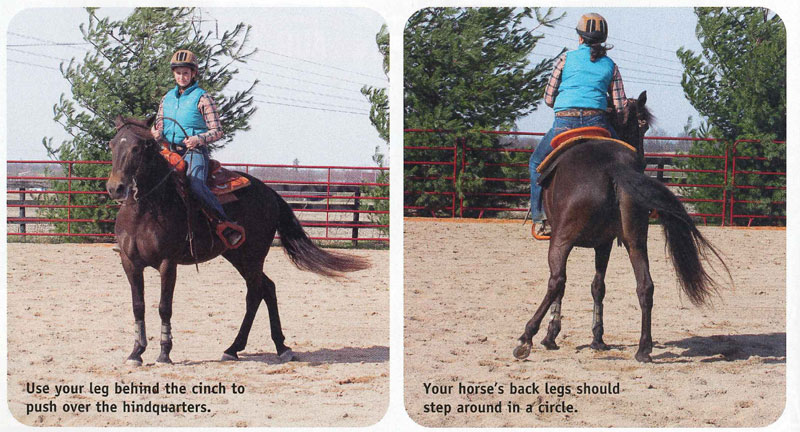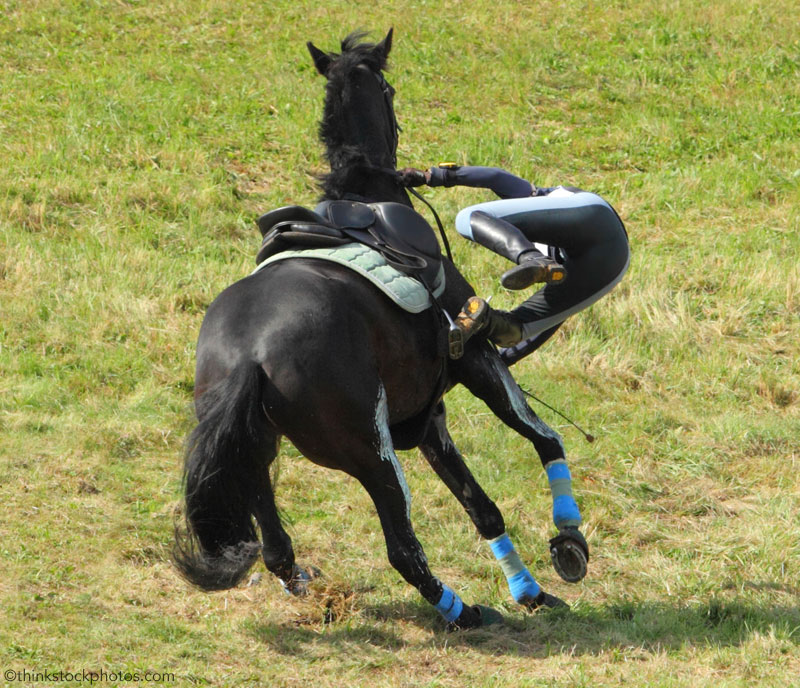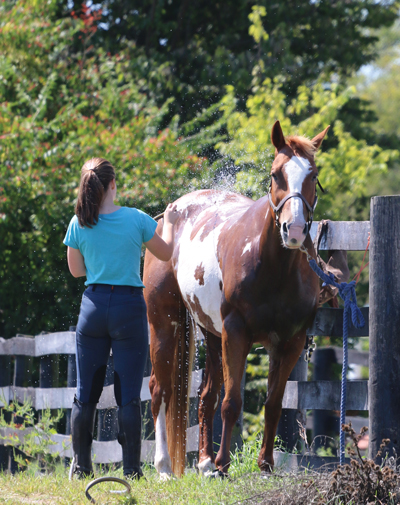 Whether you keep your horses at home on a farm or ride elsewhere and have pets at home, chances are good that there’s a cat or dog (or two) in your life. While you may have a perfect vet and care schedule for your horse every year, it’s important not to forget about the smaller animals in your life. Here are some tips to help care for your barn pets, just like your horses.
Whether you keep your horses at home on a farm or ride elsewhere and have pets at home, chances are good that there’s a cat or dog (or two) in your life. While you may have a perfect vet and care schedule for your horse every year, it’s important not to forget about the smaller animals in your life. Here are some tips to help care for your barn pets, just like your horses.
1. Identification
Our first tip to help care for your barn pets is with freedom to roam, barn cats and dogs can sometimes get lost or picked up by other people who are unaware of their actual home. Keeping a collar on your pets with a tag that has a contact phone number is an easy way to help a lost animal find its way home.
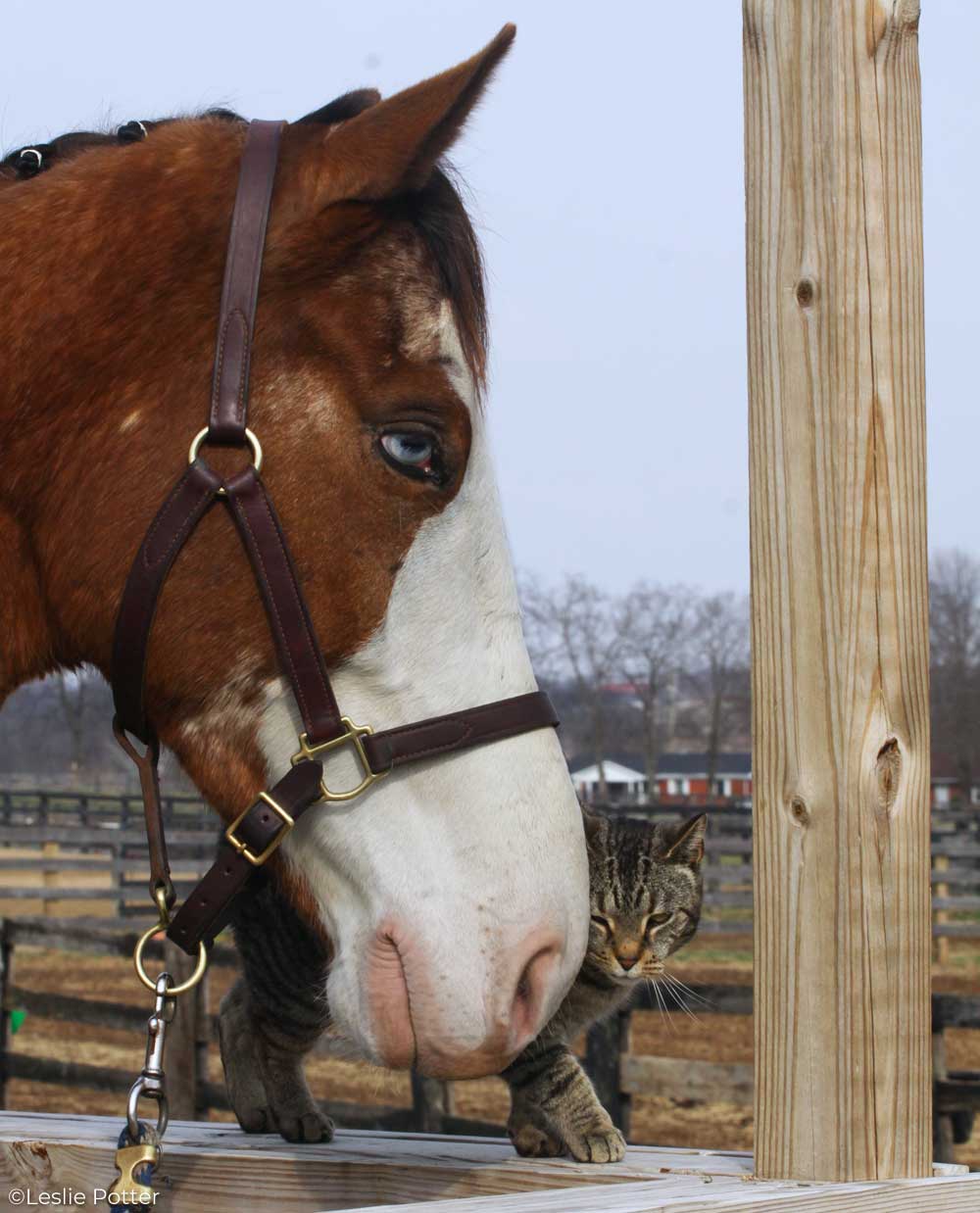
Microchips are another excellent form of ID. More expensive but permanent, a microchip is placed under the skin by your veterinarian and contains a bunch of helpful information like your name, address, phone number, and the pet’s name and age. All animal control officers will scan a lost pet to check for a microchip, resulting in safely returned pets.
2. Flea, tick, and heartworm preventatives
Although flies are a huge bother to horses, it’s fleas, ticks, and mosquitoes that are a nuisance to cats and dogs, as well as a huge health risk. Fleas cause intense itching and skin irritation and transmit parasites like tapeworms. Ticks transmit diseases like Lyme disease and Rocky Mountain Spotted Fever. Mosquitoes spread a parasite called heartworm, which starts microscopically in the bloodstream, then grows to an adult and lives in the heart.
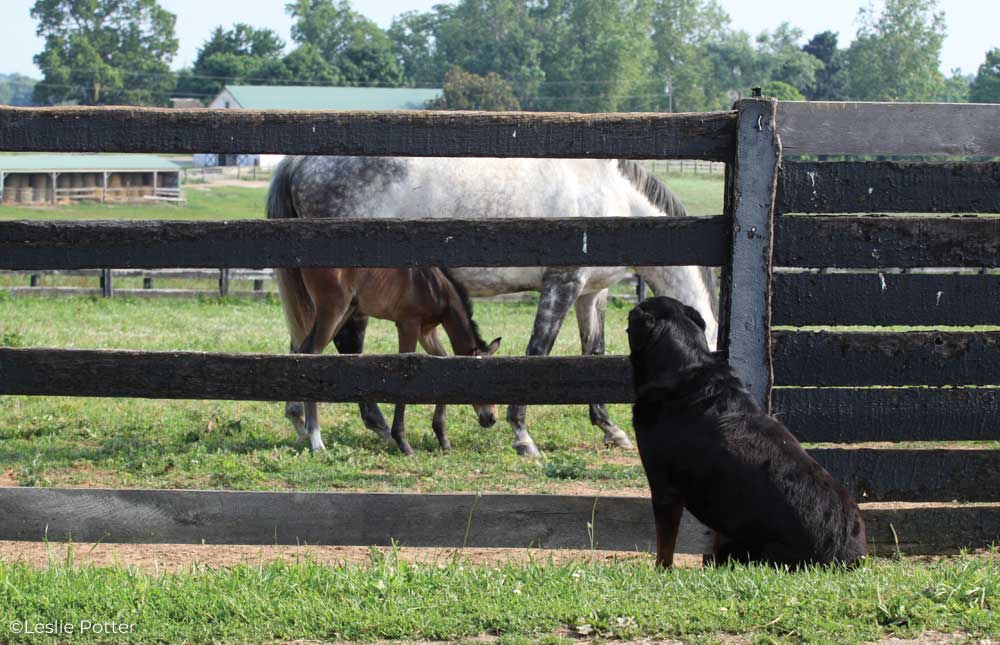
Luckily, there are monthly preventatives for both cats and dogs for all three of these nasty bugs. A monthly reminder in the tack room or on your phone is a great way to keep on schedule.
3. Vaccines
Regular encounters with wildlife and neighboring cats and dogs are typical for any barn pet, so make sure your cats and dogs are up to date on vaccines. A yearly visit to the vet will do the job; rabies and distemper vaccines are a must, and others might be added as your vet and location require.
4. Fresh Water and Food
Most barn pets make use of troughs and horse buckets for a quick sip, but cats and dogs deserve their own bowl filled daily and cleaned regularly, too. Pet food should be kept in a secure plastic or metal bin. Make sure to sweep up spills that can attract unwanted visitors to the barn like raccoons, mice, rats and opossums.
5. A warm, dry spot to call home
Barn pets are especially good at finding the warm, cozy spots when it’s cold and wet out, like hay bales and horse blankets. Make sure that barn cats and dogs have safe, dry havens to escape the weather when they need to.
6. Spay and neuter your pets
Kittens and puppies are cute, but having a litter can be hard to justify when there are so many pets in need of homes in the world already. Having barn pets spayed and neutered prevents unwanted litters and also decreases unwelcome behaviors like aggression and urine-marking in the case of males. This prevents other animals in the neighborhood from being attracted as well.
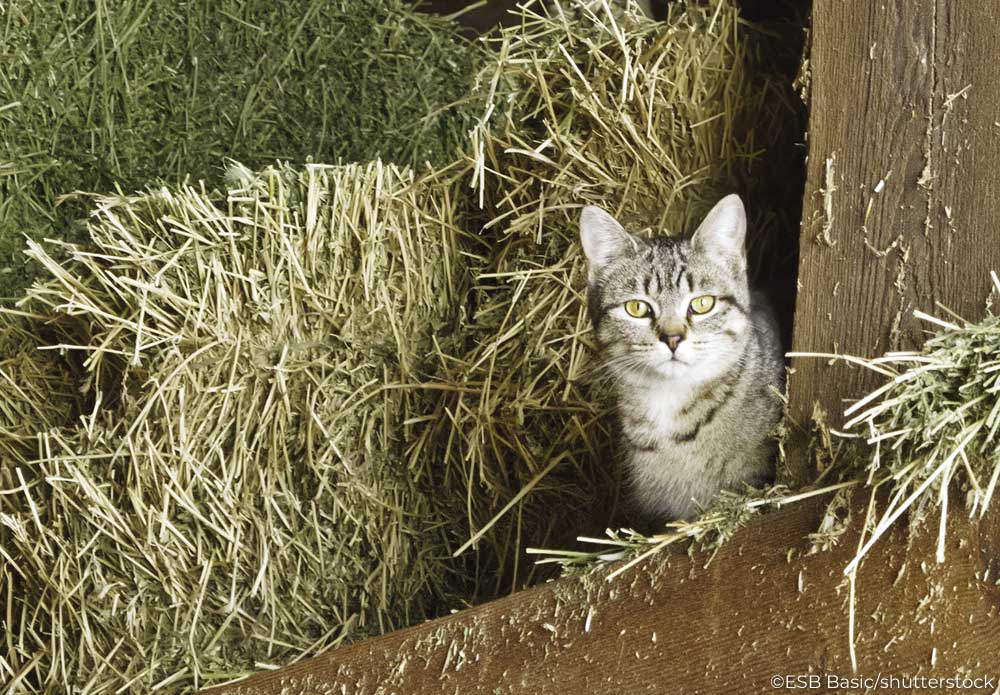
Giving a few careful thoughts to your four-legged barn buddies each day will help make sure they’re just as well taken care of as your horse.
Further Reading:
This article originally appeared in the May/June 2019 issue of Young Rider magazine. Click here to subscribe!


